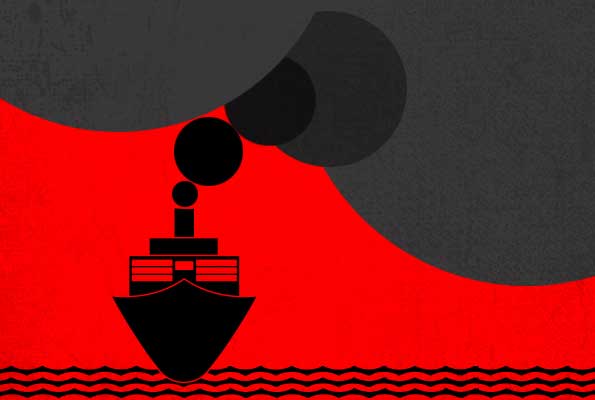As nations debate how to reduce pollution, their considerable carbon footprints that traverse our oceans and support global trade will be scrutinized.
At a recently held International Maritime Organization summit, nations were pressured to adopt ambitious emission reduction objectives and propose a charge on sector-specific pollution. Currently, shipping emits about the same amount of greenhouse gases as aeroplanes.
The IMO Marine Environment Protection Commission (MEPC) meeting was anticipated to pit wealthy nations against China and other major exporters and climate-vulnerable states, particularly Pacific islands.
“The climate crisis is an existential threat to Pacific small island developing states, as well as many other countries, but can be seen as less urgent by countries with superior resources. For this reason, the Pacific has consistently pushed for the highest level of climate regulation ambition,” Michael Prehn, the IMO delegate for the Solomon Islands, told AFP.
Net-Zero
Approximately 2% of the world’s greenhouse gas emissions are attributed to shipping, which is seen as being ineffective in the fight against climate change.
The focus of current decarbonization efforts is a 2018 IMO ruling that ordered shipping companies to cut CO2 emissions by 50 per cent from 2008 levels by 2050.
However, considering the magnitude of global emissions compared to other industries, such as aviation, aiming for ‘Net Zero’ by the same mid-century deadline, that ambition must be regarded as insufficient.
The IMO’s objectives should align with the Paris Agreement’s global warming limit of 1.5 degrees Celsius over pre-industrial times, according to the nations that advocate more aggressive reduction.
A net zero aim for the industry by 2050 is supported by about 45 nations, including the European Union, the United States, Britain, Fiji, the Marshall Islands, and Norway.
The majority also favours making 2030 a midpoint goal.
However, observers at talks that began in June 2023 before the decision-making MEPC meeting said that emerging market exporters, particularly Brazil and China, have resisted change fiercely.
The ideas were described as “unrealistic” and an attempt by industrialized countries to increase their economic competitiveness by raising shipping prices in a briefing note distributed by China that AFP saw.
A ‘No-Brainer’
Around 90% of all commodities are transported by ships, and this industry annually produces the same amount of greenhouse gases as Germany or Japan.
The ultimate abolition of greenhouse gas emissions from shipping by the middle of the century, with interim targets, would be “the necessary step forward for humanity,” according to Nicolas Entrup, director of international relations at the marine protection organization OceanCare.
Bringing the IMO targets in line with those of the Paris Agreement “should be a no-brainer,” he said.
He stated that merely slowing down boats so they use less fuel will immediately lower pollution.
Among the ideas by various nations, the EU wants emissions to be ‘Net Zero’ by 2050, with reductions of 29% by 2030 and 83% by 2040.
A 96% reduction by 2040 is the goal of nations, including the United States, Canada, the Marshall Islands, and the Solomon Islands, which are sensitive to climate change.
Observers claim that while some nations remain undecided, the United Arab Emirates, which will host the UN COP28 climate conference in 2023, has shifted its position in favour of the net zero emissions target by 2050. That has increased hopes for a solution to the problem.
A Global Tax
However, it will take more work to agree on another main idea: imposing a global tax on shipping emissions.
French President Emmanuel Macron endorsed the proposal at a recent summit on climate financing in Paris. Still, it cautioned that it would require assistance from China, the United States, and other European countries to be successful.



